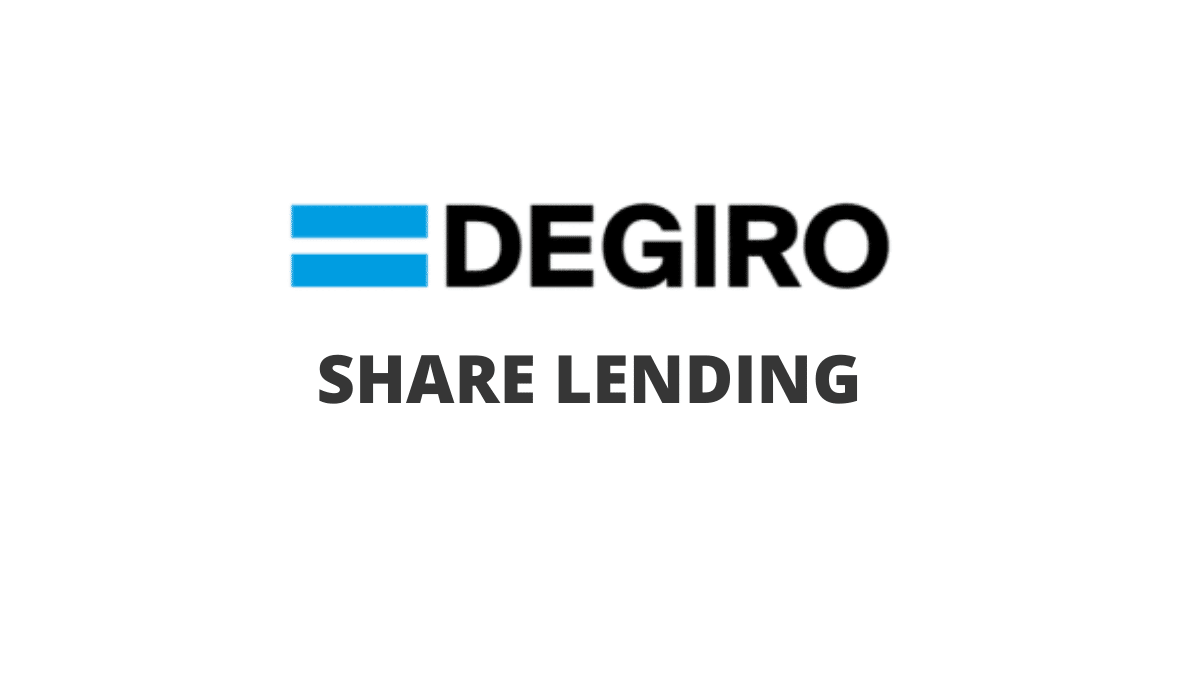Unless you have endless time on your hands, it is unlikely you will spend much of that time reading through all of the terms and conditions of your online investment brokerage.
If you did take the time to read through the terms and conditions, in most cases you would come across a policy called share lending or securities lending that most retail investors are not very familiar with.
Degiro is one brokerage that has a share lending policy, but what does it mean for investors? I will give you the lowdown in this blog post.
What is share lending?
Share lending is a practice where the brokerage lends the shares you hold with them to usually large institutional investors who are short selling a particular stock (expecting the share price of a stock to decrease).
The main reason brokers do this is it is an additional stream of income for them as they can charge interest on any loans they make with your shares. The main pain point of share lending for investors is that brokers are using your assets to generate income, but none of this income is passed on to you.
The main excuse given by brokerages is that this policy helps them keep overall fees low and improves the overall user experience.
An Extract from the Degiro T&Cs
Below is an extract from the Degiro terms and conditions that specifics clients give consent to Degiro to lend out their securities.

Hold on Degiro didn’t always have Share Lending right?
You would be correct in thinking that Degiro did not have this policy for all their accounts. In recent times if you opened a Custody account with Degiro, then your shares would not be subject to this share lending policy.
Previously Degiro had 5 different account types to choose from when you sign up – Basic, Custody, Active, Trader, or Day Trader account.
But policies changed, and new customers are now unable to sign up with Custody accounts since 2021.
Can you opt-out of share lending on Degiro?
Unfortunately it is not up to the investor if this is something they want or don’t want Degiro to do with their shares. You do not have the option to opt out of this share lending policy applying to you on Degiro.
Do other brokerages also have this share lending policy?
Degiro is not the only broker that has this policy, brokers such as Trading 212, eToro and Bux Zero also do share lending. In fact, the vast majority of European brokerages do the exact same thing and lend out your shares.
US brokerage Robinhood has a slightly more favourable policy in that they share 15% of the revenue they make from share lending with the investors who decide to opt-in.
Will Degiro Share Lending affect your portfolio?
On the face of it, your portfolio will look exactly the same; you will not notice any difference even if your shares have been lent out by Degiro.
You will still receive dividends and you can have the right to dispose of your shares at any time during the specified trading hours.
Is there any danger to the Investor?
Degiro takes two steps to provide security for any shares that have been lent out.
Firstly, Degiro asks any borrowers to provide 104% collateral to reduce the likelihood of default. And Secondly, the agreement is not with you and the borrower. Degiro is in the middle of this transaction and they guarantee that shares will be returned to you in a timely fashion.
The only potentially risky situation is if both Degiro and the borrower were to go bankrupt. Although the chance of this happening is remote, stranger things have happened.
Even if the worse were to happen, you are still covered by an investor protection scheme if Degiro were to ever go bankrupt and this will cover you up to €20,000.
Disclaimer: This blog post is for informational and educational purposes only and should not be construed as financial advice.







